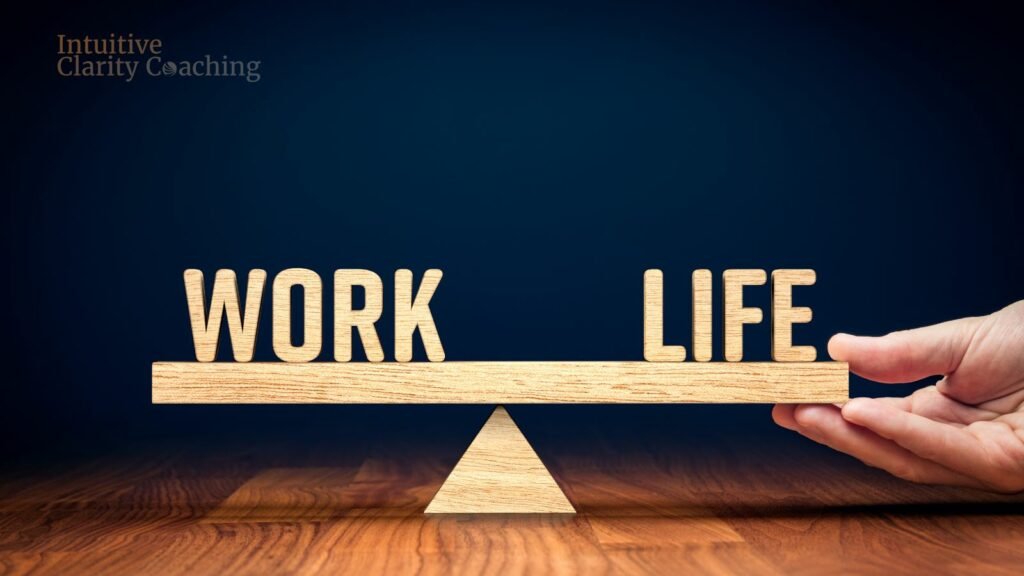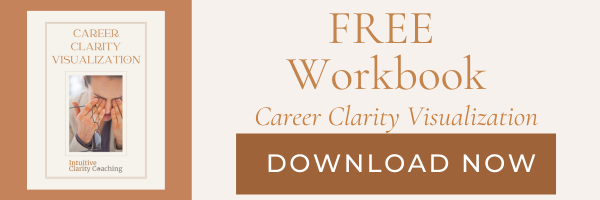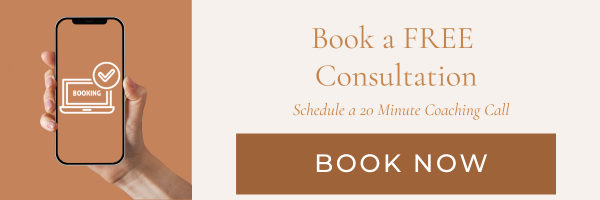In a world that constantly blurs the lines between professional commitments and personal life, the quest for work-life balance has become more relevant than ever. Yet, amidst the hustle of striving for career success and personal fulfillment, a crucial question arises: Is work-life balance truly attainable, or merely a well-intentioned myth? This debate has sparked diverse opinions, echoing through the corridors of modern workplaces and the quieter moments of self-reflection.
As Lena, a spiritual career coach with over two decades of experience, I’ve observed firsthand the struggles and triumphs of individuals grappling with this balance. My journey, enriched by a background in psychology and my ongoing pursuit of a Ph.D. in metaphysical psychology, has revealed that work-life balance is not just a possibility; it’s a necessity for our well-being. This belief is deeply rooted in the understanding that humans aren’t designed for relentless work. Just as God rested on the seventh day, we too are meant to find moments of repose and rejuvenation amidst our endeavors.
In this exploration, we’ll delve into the multifaceted nature of work-life balance, unraveling its myths and uncovering its truths. We’ll navigate through its historical context, challenge the conventional binary perspective, and introduce more holistic and spiritually informed approaches to achieving harmony between our professional and personal lives. Join me in unraveling the layers of this perennial topic, and let’s discover together if work-life balance is an achievable reality or an elusive dream.

Historical Context and Evolution of Work-Life Balance
The notion of work-life balance is not a modern invention; its roots trace back to significant societal shifts. In the 1970s and 1980s, the workforce landscape began to transform with the entry of a larger number of professional women and mothers. This demographic change marked the beginning of a new dialogue about the intersections between professional and personal life.
These decades witnessed a reevaluation of the traditional divide between work and home life. It was a time when the boundaries were questioned and redefined, paving the way for a new understanding of what it meant to balance work and life. Researchers and sociologists began to delve into how men and women juggled the demands of their careers with family responsibilities, challenging the then-prevailing notion of these as separate, unconnected spheres.
This period also saw corporations and media outlets start to engage with these concepts. Initiatives and discussions that emerged in large U.S. companies during this era laid the groundwork for the modern concept of work-life balance. This evolving conversation represented a departure from the past, acknowledging that the demands of work and home were not just parallel tracks but intertwined aspects of life.

The Myth of Perfect Balance
The concept of work-life balance often conjures up an image of a perfectly balanced scale, with equal parts work and personal life. However, this binary view is increasingly recognized as a fallacy. It presents a zero-sum game where time and energy devoted to one aspect inevitably takes away from the other, creating an unwinnable situation.
In contrast, alternative frameworks, such as David J. McNeff’s seven-slice approach, offer a more nuanced understanding. This perspective does not view life as a simple division between work and family but as a composition of multiple domains: family, professional, personal, physical, intellectual, emotional, and spiritual. Such an approach recognizes the complexity of human life and the need to consider a range of aspects for true balance.
Psychological and Spiritual Insights into Work-Life Balance
From a psychological standpoint, the quest for work-life balance is deeply intertwined with our mental and emotional well-being. The stress of trying to achieve an unattainable perfect balance can lead to burnout and dissatisfaction. Instead, a more flexible approach, one that accommodates the ebb and flow of life’s various demands, is more conducive to psychological health.
Incorporating spirituality into this equation offers an additional layer of depth. Spiritual practices, such as meditation and reflection, can provide a sense of peace and grounding, helping individuals to navigate the complexities of balancing work and personal life. These practices encourage a deeper connection with oneself, facilitating a clearer understanding of one’s priorities and values.
As we continue to explore the concept of work-life balance, we’ll delve deeper into practical strategies individuals can adopt, and the role of self-discovery in achieving a balanced life. This journey is not just about managing time or responsibilities; it’s about aligning our actions with our deeper purpose and values.
Practical Strategies for Individuals
Achieving work-life balance is a personal journey, unique to each individual’s circumstances and priorities. The following strategies can guide you in finding the right balance in your life:
Self-Care as a Foundation: Self-care is not just a luxury but a fundamental aspect of achieving balance. This includes adequate rest, a nutritious diet, regular exercise, and time for hobbies or activities that bring joy. Remember, taking care of yourself isn’t selfish; it’s essential for maintaining your energy and focus in both work and personal life.
Prioritization and Goal Setting: Identify what is most important in your life. This could be career goals, family time, personal development, or health. Once you know your priorities, set goals accordingly and plan your time and resources to achieve them. Remember, not everything can be a priority, so be realistic and clear about what matters most.
Setting Boundaries: Establish clear boundaries between work and personal life. This might mean setting specific work hours, having a dedicated workspace, or turning off work-related notifications after hours. Communicate these boundaries to colleagues and family to ensure they are respected.
Mindfulness and Meditation: Practices like mindfulness and meditation can help manage stress and improve focus. They encourage living in the present moment, which can enhance your ability to balance work and personal life effectively.
Regular Reflection and Adjustment: Work-life balance is not a one-time achievement but a continuous process. Regularly reflect on your balance, recognize when adjustments are needed, and be flexible to make changes. Life circumstances change, and so should your approach to balance.
Leveraging Technology Wisely: Use technology to your advantage. Apps for time management, mindfulness, and productivity can help you stay on track. However, be cautious of the time spent on digital devices; unplugging can also be a vital part of maintaining balance.
Seeking Professional Guidance: If you’re struggling to find balance, consider seeking the help of a professional coach or counselor. They can provide personalized advice and strategies to manage your unique challenges.
Role of Self-Discovery in Achieving Balance
As we delve deeper into the role of self-discovery in achieving work-life balance, it’s vital to understand the significance of aligning one’s personal values, passions, and career with their life purpose. This alignment is not just about fulfilling professional aspirations; it’s about nurturing a holistic sense of fulfillment that permeates every aspect of your life. Here’s a closer look at each of these crucial elements:
Understanding Personal Values and Passions: Take time to understand your core values and passions. What makes you feel fulfilled and happy? Aligning your career and personal life with these values can lead to greater satisfaction and a sense of balance.
Exploring Career Alignment with Life Purpose: Consider whether your current career aligns with your life purpose or long-term goals. If there’s a disconnect, explore ways to bridge this gap, whether it’s through a career change, pursuing further education, or developing a side passion.
Utilizing Tools for Self-Discovery: Tools like journaling, meditation, visualization, birth chart analysis, and life path number analysis can aid in self-discovery. They can provide insights into your personality, strengths, and areas for growth, guiding you toward a more balanced life.
Is Work-Life Balance a Myth?
Embracing Change and Growth: Be open to change and personal growth. Sometimes, achieving balance requires making significant changes in your life or career. Embrace these changes as part of your journey towards a more fulfilling life.
Building a Supportive Network: Surround yourself with people who support your journey towards balance. This could include family, friends, colleagues, or a community of like-minded individuals. They can offer support, advice, and encouragement when you need it most.
By integrating these practical strategies and emphasizing the role of self-discovery, you can move towards a more balanced and fulfilling life. Remember, the journey to balance is personal and evolving; what works for one person may not work for another. Stay open to experimenting with different approaches and find what best suits your unique needs and lifestyle.
Embracing Work-Life Balance as a Journey
As we conclude our exploration of work-life balance, it’s important to remember that this concept is not a mythical state to be achieved once and for all, but a continuous journey. It’s about making conscious choices every day to align our activities with what truly matters to us. Whether it’s through understanding our personal values and passions, aligning our career with our life purpose, leveraging self-discovery tools, embracing change and growth, or building a supportive network, each step is a move towards a more balanced and fulfilling life.
In my own journey as Lena, a spiritual career coach, I have seen the transformative power of aligning work with one’s deeper purpose and values. It’s a path that leads not only to professional success but also to personal fulfillment and joy. I encourage you to approach work-life balance not as a distant goal, but as a series of small, achievable steps that lead to a more harmonious life.
Remember, the balance you seek is unique to your life’s rhythm and circumstances. It’s about finding your equilibrium, where your professional and personal lives complement and enrich each other. As you continue on this journey, know that it’s okay to seek guidance and support when needed.
If you find yourself seeking more personalized strategies to achieve this balance, I invite you to reach out for career coaching. Together, we can explore your path to a balanced life, one where your work and personal life coexist in harmony, allowing you to experience all the joy and fulfillment life has to offer.
In conclusion, embrace the quest for work-life balance as a vital component of your well-being. It’s a journey worth undertaking, for in its pursuit lies the key to a richer, more meaningful existence.






